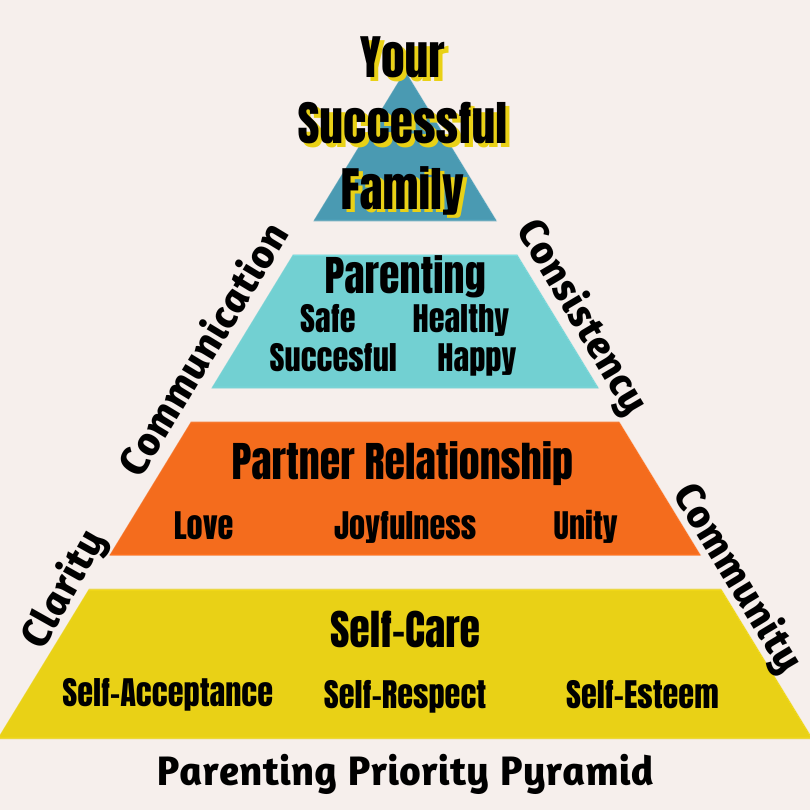
The Balanced Path: Moderation in Family Life

Moderation is a powerful virtue that helps us navigate life with a sense of balance and contentment. It involves using self-discipline to create harmony between work, rest, reflection, and play, protecting us from the extremes of excess and deficiency. In family life and parenting, moderation ensures everyone can thrive without the stress of overdoing or the lack of underdoing.
However, like any virtue, moderation can be overdeveloped or underdeveloped, leading to imbalances that affect family dynamics and individual well-being. Let’s explore what this looks like and how we can maintain a balanced approach with the help of complementary virtues.
Overdeveloped Moderation
When moderation is overdeveloped in family life, it can manifest as excessive control and restriction. Parents might become overly rigid, enforcing strict schedules and rules that leave little room for spontaneity and joy. This can create an environment where children feel suffocated and unable to express themselves freely. For example, a family might have a tightly packed routine where every minute is accounted for, leaving no space for unplanned activities or relaxation. While structure is important, too much can lead to stress and burnout for parents and children. Overdeveloped moderation can also stifle creativity and prevent family members from experiencing the richness of life that comes with occasional indulgence and flexibility.
Underdeveloped Moderation
Conversely, underdeveloped moderation in family life often results in a lack of boundaries and discipline. This can lead to chaotic and unhealthy lifestyles where indulgence and neglect of responsibilities become the norm. For instance, children might spend excessive time on screens, eat unhealthy foods, and stay up late because parents set no clear guidelines or limits. This lack of moderation can result in poor health, decreased academic performance, and strained family relationships. Parents who struggle with underdeveloped moderation may find themselves overwhelmed by the demands of daily life, as the absence of structure leads to disorganization and stress.
Balancing Virtues
To keep moderation in balance, several virtues can be cultivated within the family:
1. Discipline: Discipline helps set healthy boundaries and maintain structure without being overly rigid. It ensures that responsibilities are met and time is used wisely, promoting a balanced approach to daily activities.
How it Balances: Discipline provides the necessary framework to practice moderation effectively, preventing the extremes of overcontrol and chaos.
2. Flexibility: Flexibility allows for adaptability and the ability to enjoy spontaneous moments. It helps balance the need for structure with freedom and creativity.
How it Balances: Flexibility ensures that moderation does not become too rigid, allowing family members to experience joy and relaxation without feeling confined.
3. Responsibility: Emphasizing responsibility ensures that each family member understands their role and contributes to the family’s wellbeing. It promotes accountability and the fulfillment of duties.
How it Balances: Responsibility helps prevent the underdevelopment of moderation by encouraging family members to take ownership of their actions and choices.
4. Gratitude: Gratitude fosters contentment and appreciation for what one has, reducing the desire for excess. It helps family members focus on the positive aspects of their lives.
How it Balances: Gratitude counters the tendency to overindulge by encouraging a mindset of sufficiency and satisfaction
5. Joyfulness: Joyfulness brings lightness and happiness into daily life. It ensures that family life is not overly serious and that there is space for fun and laughter.
How it Balances: Joyfulness prevents moderation from becoming too stringent, allowing family members to experience pleasure and delight in their interactions.
6. Self-awareness: Self-awareness enhances understanding of personal needs and limits. It promotes mindfulness and reflection and guides balanced decisions and actions.
How it Balances: Self-awareness helps individuals recognize when they are leaning too far toward extremes, enabling them to adjust and find balance.
The Four C’s of Successful Families helps parents articulate what moderation looks and behaves like in their unique family and then live by those values consistently. No matter how a family agrees moderation looks and feels, you can tell if it works for your family by checking in to see if you are living a balanced and harmonious family life.
When moderation is taken to extremes, it can lead to rigidity or chaos, impacting the well-being of both parents and children. By cultivating these balancing virtues, such as discipline, flexibility, responsibility, gratitude, joyfulness, and self-awareness, families can maintain moderation without falling into the traps of over control or neglect. These virtues work together to create an environment where everyone can thrive, enjoy life, and support each other’s growth. Embrace moderation with an open heart and mind, and watch your family flourish in a balanced, joyful, and fulfilling life.
Joe is a husband, father, grandfather, author, speaker, educator, course creator, and parent/family coach.
He helps parents develop unity, find clarity, communicate, and develop consistency in their parenting with the Four C’s of Successful Families. You can find his work on social media.
In addition, the Four C’s newsletter is enjoyed by many as it encourages parents to self-care, build their relationships with their partners, and raise their children.
And he loves to golf!






